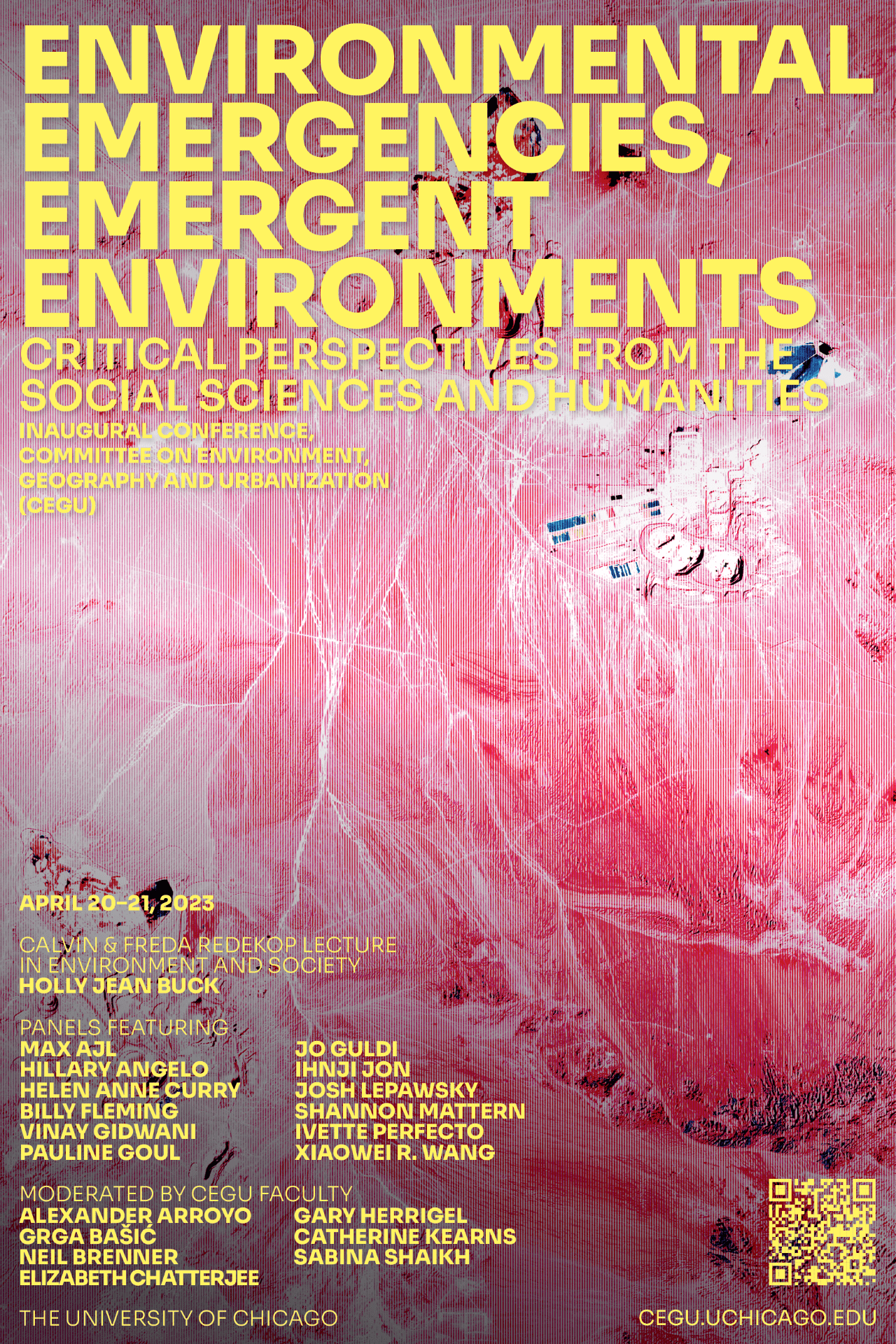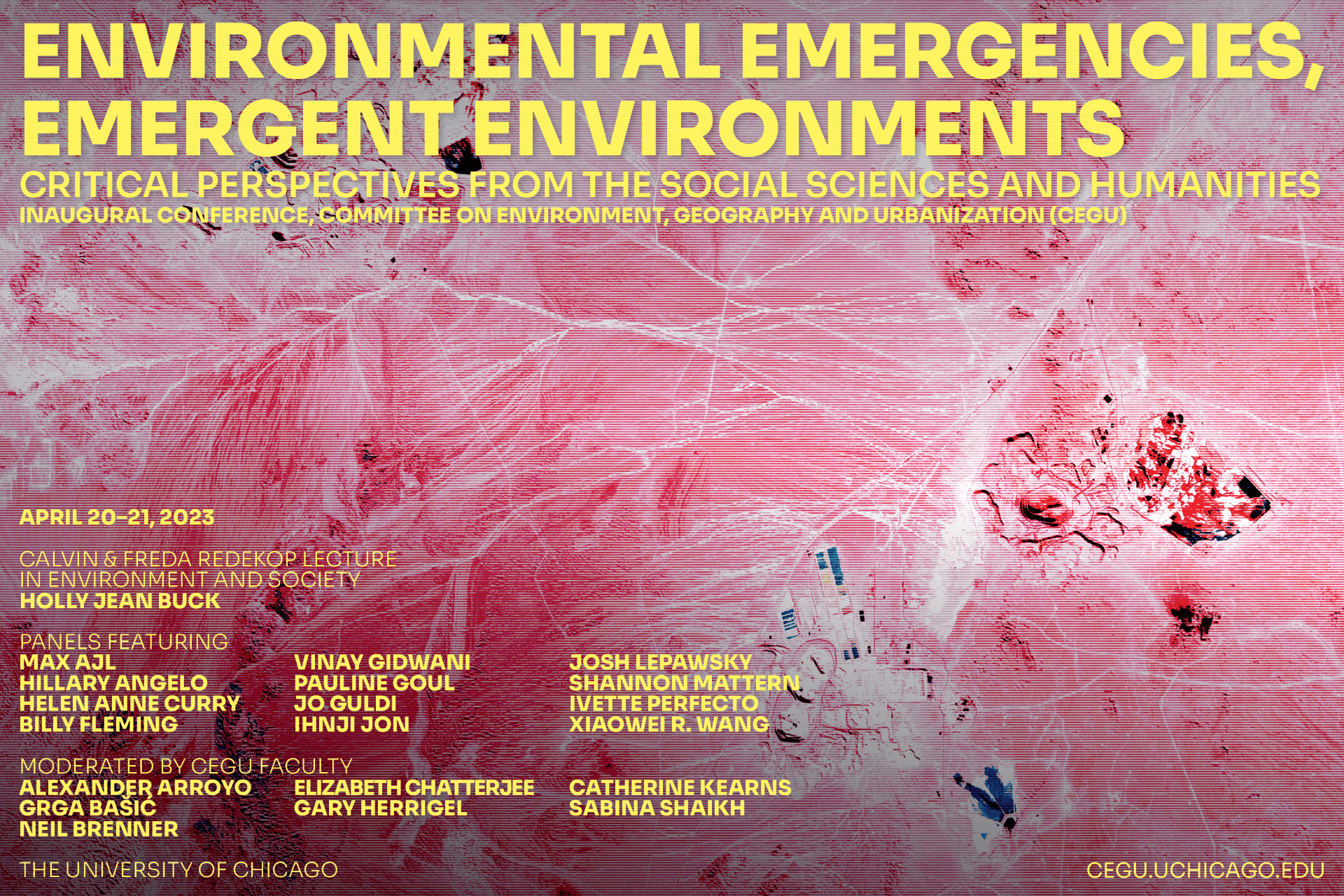Environmental Emergencies, Emergent Environments
Critical Perspectives from the Social Sciences and Humanities
Inaugural Conference, Committee on Environment, Geography and Urbanization (CEGU)
Division of Social Sciences, The University of Chicago
April 20–21, 2023
Environmental Emergencies,
Emergent Environments
Critical Perspectives from the Social Sciences and Humanities
Inaugural Conference, Committee on Environment, Geography and Urbanization (CEGU)
Division of Social Sciences, The University of Chicago
April 20–21, 2023
Calvin & Freda Redekop Lecture in Environment and Society
Moderated by Elizabeth Chatterjee, University of Chicago
Thursday, April 20, 2023, 4:30–6:00pm
Room 122, Regenstein Library
After "Net Zero:" What New Frames for Climate Action?
Holly Jean Buck, University at Buffalo
Climate action has been framed in terms of “mitigation”—emissions cuts—with net-zero emissions as the latest goal. Net-zero emissions relies on balancing some amount of remaining emissions with carbon removals (such as increased afforestation, or direct air capture with geologic storage). Yet at present, there is no policy to quantify what those remaining emissions should be and limit them; nor is there a real push to scale up carbon removals to climate-significant levels. Net-zero is also a frame that is strategically silent on the question of whether and how to phase out fossil fuels. This talk will lay out some reasons why net-zero is a flawed frame, and why it may not persist as a central way of tracking climate action. Then, we'll explore what happens if net-zero collapses as the goal for climate policy. We'll examine alternative frames and goals that may arise, and we'll consider whether and how researchers and civil society should push for those alternatives.
Holly Jean Buck↗ is a geographer and environmental social scientist studying rural futures, the politics of platforms, and how emerging technologies can address environmental challenges. She is the author of After Geoengineering (Verso, 2019) and Ending Fossil Fuels: Why Net Zero Is Not Enough (Verso, 2021). An interdisciplinary researcher, she is a contributing author to the Intergovernmental Panel on Climate Change's sixth assessment report, and the National Academies study A Research Strategy for Ocean Carbon Dioxide Removal and Sequestration. Recent publications examine the political ecologies of a prospective CO2 pipeline (Environment and Planning E), projections of residual emissions in national long-term climate strategies (Nature Climate Change), and what being extremely online means for climate action (in the forthcoming book Democracy in a Hotter Time, edited by David Orr). She holds a Ph.D in Development Sociology from Cornell University, and is currently an Assistant Professor of Environment and Sustainability at the University at Buffalo in New York.

